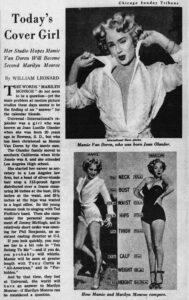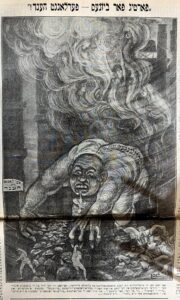
The Push
We can’t help but wonder if the mentalist Derren Brown went way too far when he tried to prove that he could convince someone to commit murder. Is social pressure really this effective when it comes to pushing someone to commit horrific crimes?
That was the primary idea of the reality TV show The Push, which was released in February 2018 on Netflix. In the show, 70 actors participated in a very elaborate setup to convince the subject to push someone off a building. The show focuses on a character called Chris, who’s a young, ordinary man who is going through a very traumatic experience.
Nazi experiments
During the Holocaust, Dr. Josef Mengele made a couple of cruel experiments on Jewish prisoners, especially on twins. He wanted to demonstrate the importance of heredity, confirming the Nazi’s obsession regarding the Aryan race.
Also called the Angel of Death, Mengele mistreated his subjects and most of them died during the experiments that included amputations and the intentional injection of diseases.
Slaves as guinea pigs
James Marion Sims, who remained in history as the father of gynecology and the inventor of the speculum (the instrument used to observe the interior of the va*ina), abused repeatedly black slave women by making all kinds of experiments on them in the 19th-century United States.
These women were undergoing surgeries without anesthesia and didn’t have the option of refusing to be experimented on, as the approval of their “owners” was more than enough.
The Monster Study
Back in 1939, 22 orphans in Iowa were the subjects of an ugly experiment that focused on stuttering and language development. Divided into two separate groups, the kids received various forms of therapy, both positive and negative.
As half of them were actually encouraged and congratulated for their ability to speak fluently in a certain language, and the other half was completely humiliated for the tiniest mistakes in their speech. Some of the children who were negatively reinforced quickly developed language difficulties and psychological scars that followed them their entire lives.
The study was considered to be so troubling, that the peers of its author, Dr. Wendell Johnson, called it the Monster Study.






















